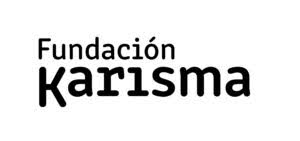Fundación Karisma
Colombia
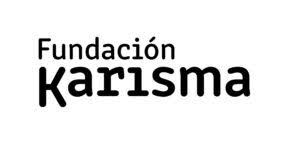
Founded in 2003, Fundación Karisma is a Colombian civil society organization ensuring digital technologies protect and advance fundamental human rights and promote freedom of expression. Because Fundación Karisma’s mission has adapted to the rapidly changing landscape of the digital world, they have grown to become one of the leading Latin American civil society organizations working to protect individuals’ rights on the web. At its core, the organization strives to create a world in which human rights and social justice guide the development and implementation of technologies.
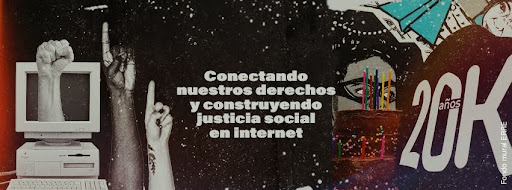
The Four Pillars of Fundación Karisma
The work of Fundación Karisma is structured around four programs: Civic Participation, Autonomy and Dignity, Social Inclusion, and the Democratization of Knowledge and Culture. These four programs have been added throughout Fundación Karisma’s twenty years of operation, and the organization continues to re-evaluate the most pressing themes facing human rights on the internet each calendar year.
The organization encourages civic participation by framing digital technology as a promoter of political and social participation, while defending individuals’ rights from arbitrary and illegitimate interference. In a world in which political campaigns and voter registration are increasingly being carried out online, Fundación Karisma tasks itself with monitoring the challenges this brings, specifically in regard to transparency. Moreover, they seek to guarantee the fundamental right to protest as it occurs in the digital realm.
‘Autonomy and Dignity’ pertains to individuals’ rights to their data. As corporations and governments exploit users’ data by data mining, covertly collecting biometric data, and implementing artificial intelligence in often-discriminatory algorithms, internet users experience a lack of transparency on how their data is being used and who has access to it. Fundación Karisma educates individuals about their rights, and promotes the implementation of data-intensive technologies that respects internet rights and overcomes historical power imbalances.

Their social inclusion program is committed to alleviate inequalities. Only 73% of the Colombian population has access to the internet, with rural and low income communities most affected by a lack of access. This number does not take into account the fact that many individuals with access only have it through prepaid cell phone plans with poor connectivity. Fundación Karisma advocates for Colombian citizens who are unable to access vital government services that require access to the internet.
More recently, their social inclusion team has been monitoring violence against women online and urging congress to expand their jurisprudence regarding gender violence into the digital realm. In their commitment to social inclusion, they have organized digital safety training workshops, including one designed for women who have been elected into government as well as those who are interested in entering politics.
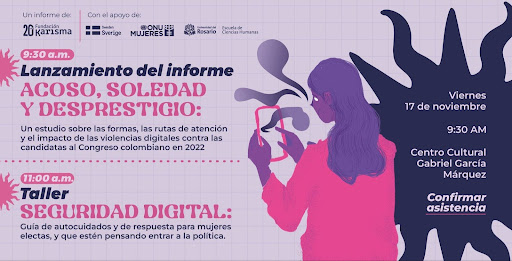
ARC spoke with Viviana Rangel, the coordinator of the ‘Democratization of Knowledge and Culture’ program at Fundación Karisma. This program works to democratize knowledge and culture for Colombian citizens to access educational and artistic content in an accessible and secure environment. Rangel emphasized that the organization’s work in this area both promotes citizen’s access to shared cultural resources and protects the freedom of artistic expression online.
Fundación Karisma is particularly concerned with the challenges posed by streaming platforms. Not only can the platforms’ algorithms harm the diversity of artistic expression, they also contribute to the inequitable remuneration of artists. “In the case of services such as Netflix and Spotify, the last actor who actually benefits financially is the artist,” Rangel told ARC. Knowing this, Fundación Karisma has conducted several studies on the challenges that digitization has brought to different sectors of the creative economy and has advocated for artist’s rights at the international level.
“Artists are vulnerable [to human rights abuses] online in a way that no one truly takes into account,” Rangel told ARC. “Journalists can be vulnerable, but at the same time there is a lot of public attention on the threats that journalists face. Gender violence is also a very important issue, though similarly many people understand and are aware of this problem. However, artists face very profound vulnerabilities that no one is aware of.”
Fundación Karisma has brought awareness to the threats artists face in the digital world by recently carrying out a study focused on freedom of artistic expression online. Slated to be released in a report in early 2024, their findings indicate that the most common challenges artists face in the digital world is censorship in the form of the unjustifiable removal of their account or content and shadow banning (muting a user or their content). This censorship stems not just from artistic content that for erroneous reasons social media platforms find offensive, but also from openly shared political opinions. Artists who publicly share their support or disapproval of politicians or social issues often face immediate repercussions.
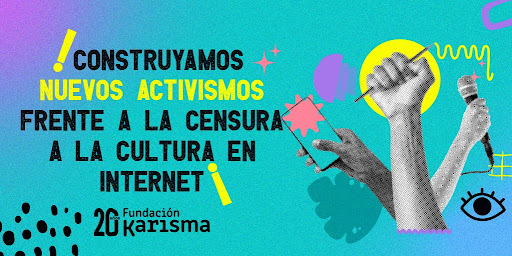
In December 2023, Fundación Karisma partnered with ARC for a regional workshop in Bogotá, Colombia titled, “Exploring Gender in Latin American Art: Coloniality, Power, and Feminine Expression.” The two-day workshop convened 20 women and non-binary artists and activists from across Latin America to discuss present challenges to freedom of expression and create networks of empowerment and collaboration, with the inclusion of interactive sessions led by Fundación Karisma, Cartel Urbano, and Fondo de Acción Urgente para América Latina y el Caribe. Fundación Karisma focused on the digital safety challenges artists face and offered resources on how to engage with art and activism online without becoming a target.
Fundación Karisma’s commitment to freedom of expression and protecting the rights of artists intersects powerfully with ARC’s mission. As the digital world continues to evolve, Fundación Karisma will stay a constant and essential organization working to safeguard digital rights in Latin America.
Solution Labs
Fundación Karisma has two laboratories where IT professionals educate and engage with local communities about digital safety and human rights. K Technological Appropriation is a laboratory dedicated to finding solutions for rural, isolated Colombian communities that have negligible or intermittent access to the internet. The lab operated as the ‘Kimera Project’ between 1985 and 2006 and worked to develop educational and multimedia titles in different formats. It was absorbed by Fundación Karisma in 2016 with the goal of making the software available to users.
Fundación Karisma has spent the last seven years working with indigenous communities to install a local network—the Kimera Local Network—in schools. Through this initiative, students who live in rural communities have been able to access educational material in their indigenous language.
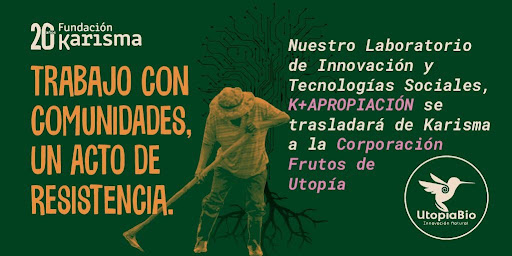
Established in 2017, K-Lab is the first digital security and privacy laboratory in Colombia designed by and for civil society. At K-Lab, human rights defenders and journalists can have their devices inspected by IT professionals to see if they are being hacked, bugged, or surveilled. Fundación Karisma specifically utilizes the K-Lab to assist the country’s lideres sociales or ‘social leaders,’ human rights defenders that work to defend rural, indigenous territories and advocate for the preservation of culture, education, and environmental activism in their communities.
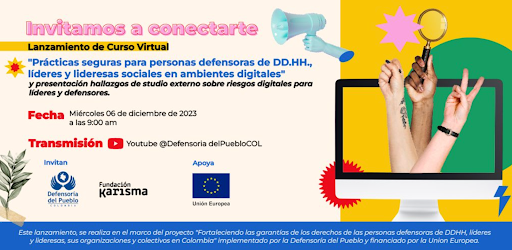
“The human rights situation in Colombia is very grave,” shared Rangel. “However, the human rights organizations in the country that face the most risk are those which operate in territories in conflict.”
Fundación Karisma believes they are well-positioned to offer their resources and services to individuals, communities, and organizations that are under direct threat. The organization is demystifying technology, ensuring that it can be a tool for empowerment and free expression rather than another means of oppression.
Rose Bialer, December 14, 2023. Rose is the Post-Grad/Gap-Year Fellow at ARC. She previously worked as ARC’s International Programs Intern. She holds a BA in Sociology and Spanish from Kenyon College and an MPhil. in Comparative Literature from Trinity College Dublin. She lives in Barcelona, Spain.






